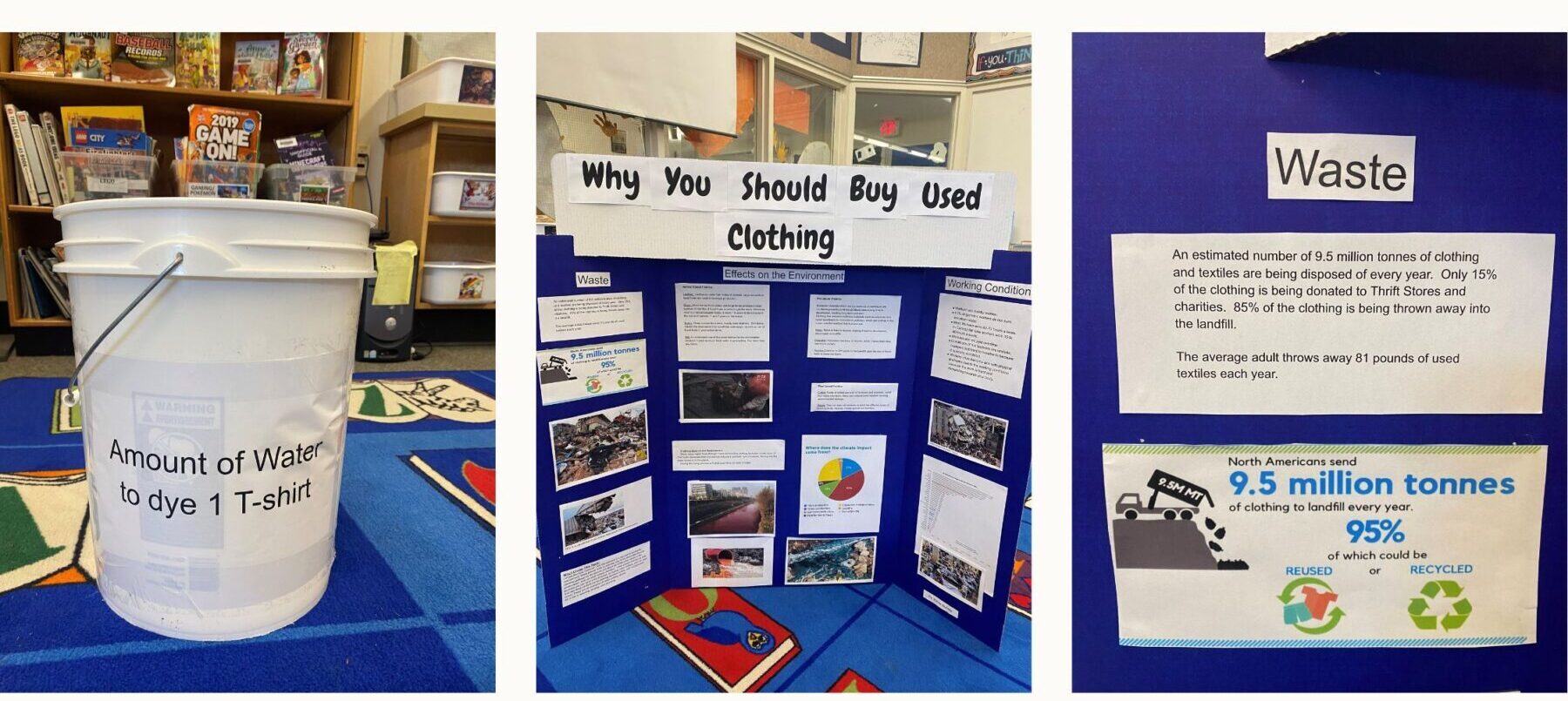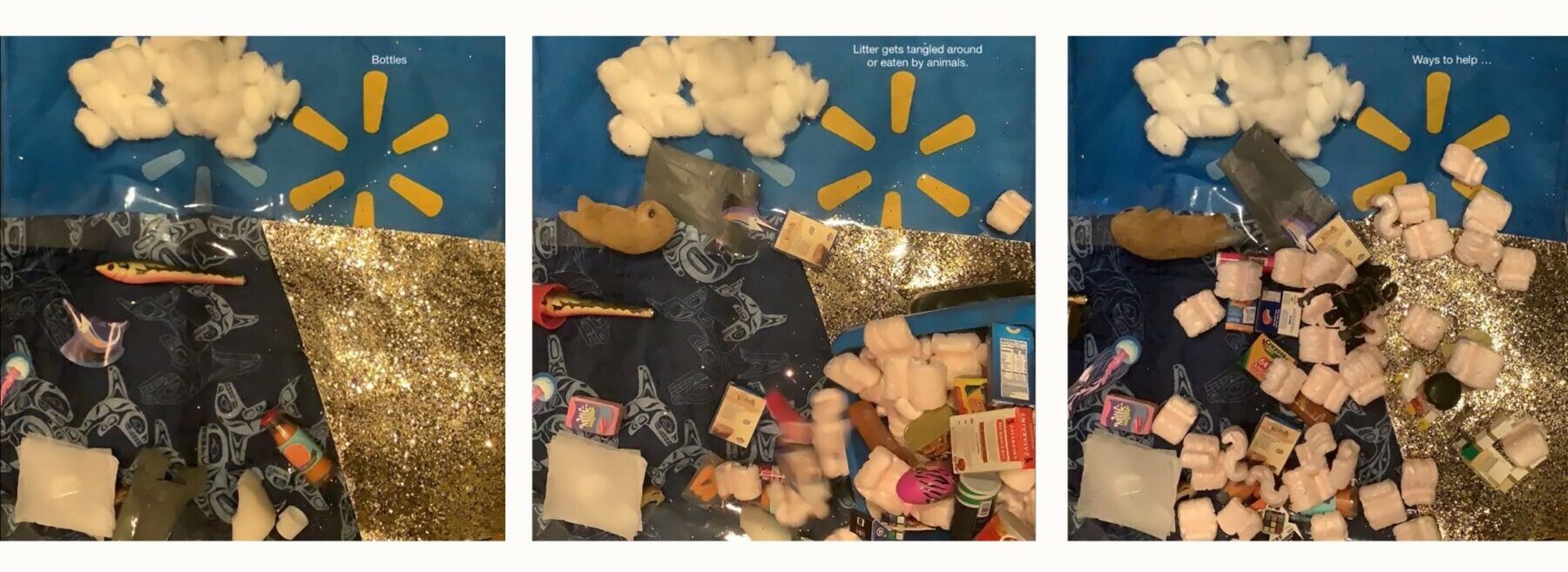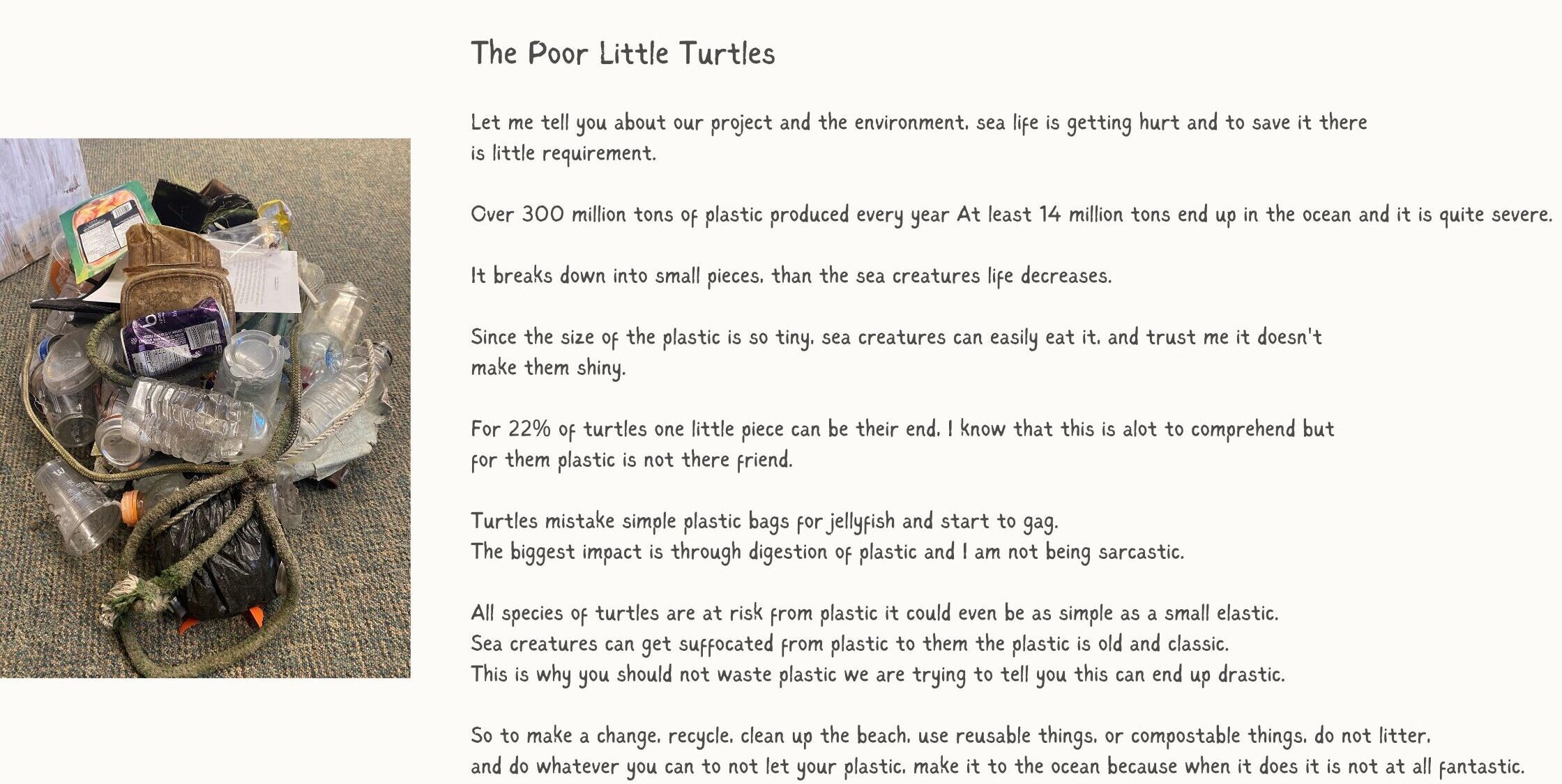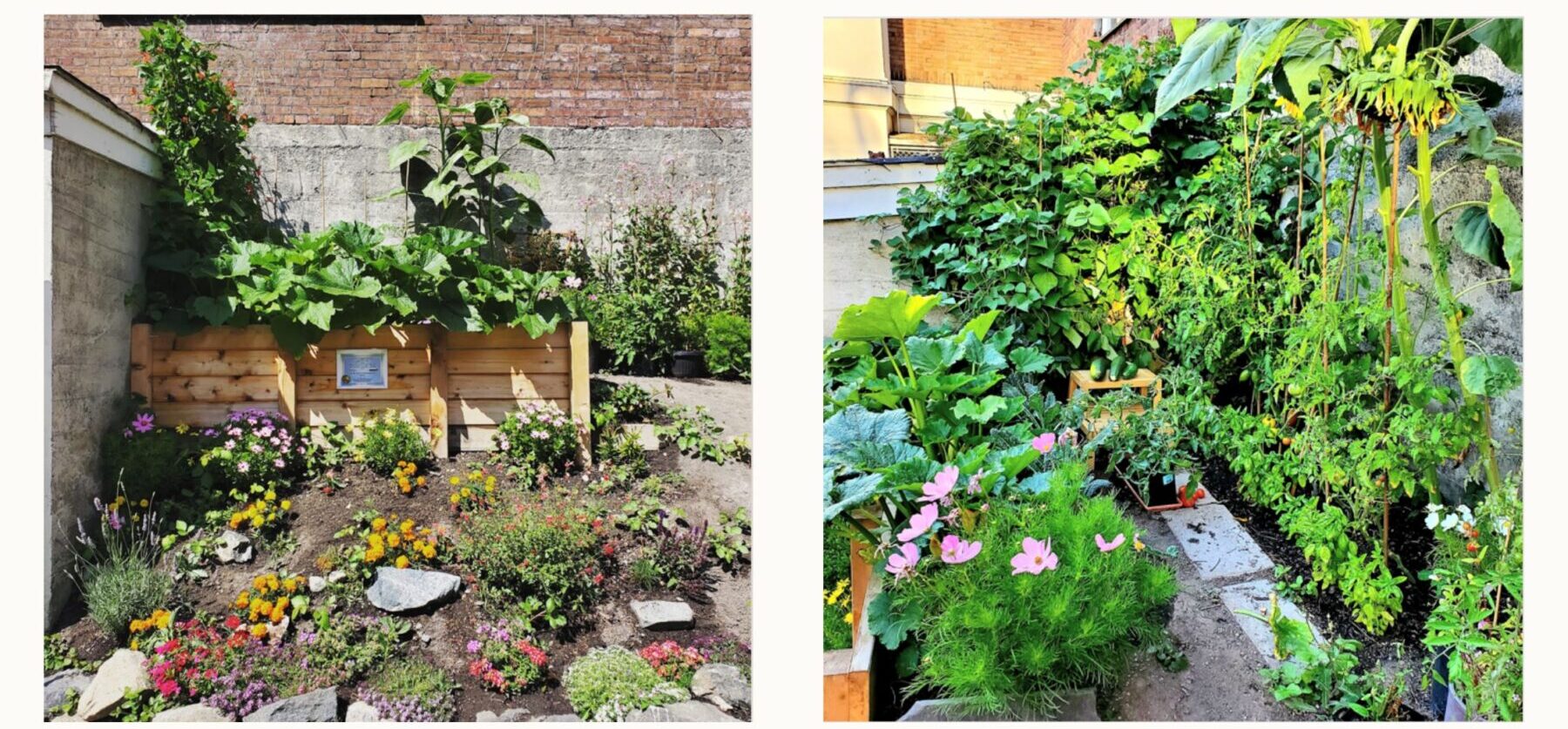The 2022 Innovation Challenge contest marked the 10th year anniversary of Take a Stand’s initiatives to inspire and empower youth to protect the natural environment of British Columbia using art and film and tipping point actions in the community.
As a way to celebrate the impact youth are making in their communities, we partnered with Raincoast Conservation Foundation to organize this year’s Student Innovation Challenge.
Students from BC and Washington State participated in the challenge to showcase the conservation and education projects they have undertaken. Eighteen submissions from over 50 students were entered in the form of videos, posters, artworks, powerpoint presentations, and websites, and were judged by Arian Tomar, Mackai Sharp, and Nic Teichrob of Take a Stand, and Shauna Doll of Raincoast. The judges reviewed all submissions, and selected winners to receive some amazing prizes generously donated by local companies.
The judges were impressed by the creativity, and the depth and breadth of the Student Innovation Challenge projects, which spanned themes of Human Connections and Impacts, Community and Individual Inequities, Climate Change, and Protecting Local Wildlife and Habitats of Coastal BC and the Pacific Northwest.
Prize winners
Right to Clean Water
The winner of the Grand Prize for 2022 was Lola of Seaview Elementary for her project Not Alone Neskantaga. Lola created a website to raise awareness about access to water in Indigenous communities, specifically of the Neskantaga First Nation’s water crisis (notaloneneskantaga.wixsite.com/website). Said Arian Tomar, judge and Grand Prize Winner for 2021, the website “was an inspiration to all the judges and we hope that you continue to uplift unheard voices wherever they may be found”. Below is one of the films that Lola’s website showcases and that sparked Lola’s passion for water justice and for addressing the present inequities that exist in Canada in which Indigenous communities that are most vulnerable are disproportionately affected in relation to rights to clean water.
Environmental Impacts of the Clothing and Fashion Industry
The Top Prize for Grades 3-7 went to Sylvia of Seaview Elementary for her in-depth poster project about the environmental impact of the clothing industry, which asked the viewer to consider buying used clothing as one significant means of cutting down waste and offsetting climate change. This was a visually impactful and well researched project. 
Creating Habitat for At-Risk Wildlife
The Top Prize for Grades 8-12 was awarded to Jonas, Oskar and Gustav of the Pacific School of Innovation and Inquiry for their project building nesting boxes for northern saw-whet owls (Aegolius acadicus), an at-risk species on Vancouver Island.
Educating the Public About Ocean Pollution
The Creative Expression Award in the Grade 3-7 age group went to Jaden of Seaview Elementary for creating an impressive stop-motion animation video about ocean pollution.
In a related entry, Sophie and Kiona of Seaview Elementary won Best Storytelling/Most Visually Impactful for their entry entitled Gulpy the Turtle; the judges especially liked the use of multiple media that included a sculpture and a poem.
Building More Sustainable Homes
For Grades 8-12, the Creative Expression Award went to a team from the Pacific School of Innovation and Inquiry called In Spore Taste for their Bob Dylan-inspired song and video, called Subterranean Mycelium Blues. This group created a humorous and memorable video that showcased how fungi have the potential to create building materials for housing construction that are more sustainable because of reduced emissions.
A New Paradigm for Youth Learning and Creating Social Change
The Global Impact Award went to Raghvendra of Pearson College for his leadership project Paramarsh, which helps support students in India making a difference in society. The issues tackled by this project include gender inequality and educational inequity. By fostering leadership and mentoring student-led passion projects, Raghvendra believes this to be a way of making communities a better place to live and creating sustainable structures for change in the society. This year alone, Raghvendra is leveraging 25 student leaders working on over 10 diverse issues in the slum community of Jogeshwari. The intent is to develop the project more globally, and as part of this, Raghvendra has fostered numerous collaborations with other organizations.
Protect What You Love: Protect the Salish Sea
In addition to individual and small group projects, many classes also shared with us their work. The Best Cinematography (Oscar) Award went to the Grant Center for the Expressive Arts (Tacoma, WA) for their stunning and comprehensive video about the biodiversity of the Salish Sea and the threats it faces. The film also underscored the importance of Indigenous Knowledge.
Local Food Production, Food Security, and Bee Conservation
Three class projects focused on their progress toward creation of community gardens as the means for offsetting climate change and addressing food security and sovereignty. This included classes from Pemberton Secondary (Most Organic Award), Pacific School of Innovation and Inquiry (Community Impact Award) which was featured in the local news, and Seaview Elementary (Classroom Engagement Award); Seaview is transforming their school garden into an Indigenous Kwikwumluxw Learning Garden. Yet another class project from John Knox School created a unique and informative video on the importance of bees and bee habitat conservation to ensure continued access to healthy foods (Conservation Award).


Best Classroom Engagement Award
This award went to Seaview Elementary in which the multiple and varied student projects were overseen by teacher and librarian J. Canty. This school created the highest number of student innovation projects and they went on to host a School Fair to display the projects. The achievements of this class and school were also recently recognized by the David Suzuki Foundation, in which they won the People’s Choice Award in the David Suzuki Future Ground Prize Competition – Seaview Takes a Stand. The Times Colonist and Nanaimo Bulletin recently highlighted the many impactful projects that solidified this win. One that is particularly noteworthy is the school’s Kwikwumluxw Learning Garden. As J. Canty elaborates:
“Kwikwumluxw means little root in Hul’qumi’num, our local First Nations language. This garden will be the “root”, or the foundation that connects our land and the teachings we have received from our elders. Our current focus is to create an outdoor learning space to support land-based education, connect students to the environment, their traditional language and Indigenous learning perspectives. When we feel connected to the land we develop an ownership and our passion to protect what we love amplifies. By protecting what we love our students are building a connection with nature and their planet and learning that they can STAND UP for a better tomorrow.” Read the full article here.
Towards a brighter future
The future is looking bright for these young, inspiring students. We hope they continue to learn, create and make an impact in their communities. Raincoast Conservation Foundation and Take a Stand aim to help young aspiring stewards on their journey and encourage more youth to take action.
Last year’s winner of the 2021 Student Innovation Grand Prize, Arian Tomar, has continued to make an impact in his community. Since then, he not only hosted season 3 of Coastal Insights, but he has also joined the Take a Stand team, contributed to the Salmon Stories docuseries of Raincoast, and is now working as an intern to document an experiential learning program taking place in BC with Where There Be Dragons. This Fall, Arian will be attending the University of Southern California in Los Angeles to study Film and Television Production. We are excited to see where the future takes him and other Student Innovation Challenge participants.
Coastal Insights Season 3 and Teacher Mentors
Inspiring youth participation in our Student Innovation Challenge this year were classroom visits by Norm Hann and Fernando Lessa, as well as Coastal Insights 3, this year’s educational webinar series for youth created in partnership with Raincoast Conservation Foundation, and focusing on hope, equity, and advocacy (see What’s New). It featured many voices of researchers, advocates, and activists who are pushing past challenges to make a positive change, and was hosted by Take a Stand youth team members Arian Tomar and Mackai Sharp, featuring guest host Emily Kelsall. Arian, Mackai and Emily continue to push the boundaries of social change through their ongoing film projects.
The Student Innovation Challenge would not be successful without the commitment and passion of teacher sponsors and mentors. In this regard we give thanks to Jolaine Canty (Seaview Elementary), Bryan Johnson (Grant Center for the Expressive Arts), Marija Dang (Pearson College), Andrew Murgatroyd (Pacific School of Innovation and Inquiry), Daryl Treadway (Pemberton Secondary), and Jeanine Wasik (John Knox School).
Organizers and sponsors
Coastal Insights Season 3 and the Student Innovation Challenge 2022 were created and coordinated by Allison Kermode, SFU Professor Emeritus and Director of Take a Stand, and Asta Mail and Pascale Campagna-Slater, Education Coordinators at Raincoast.
Raincoast and Take a Stand would like to thank our generous sponsors who donated incredible prizes.
